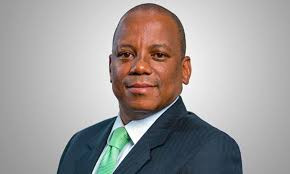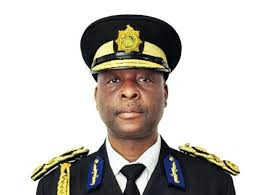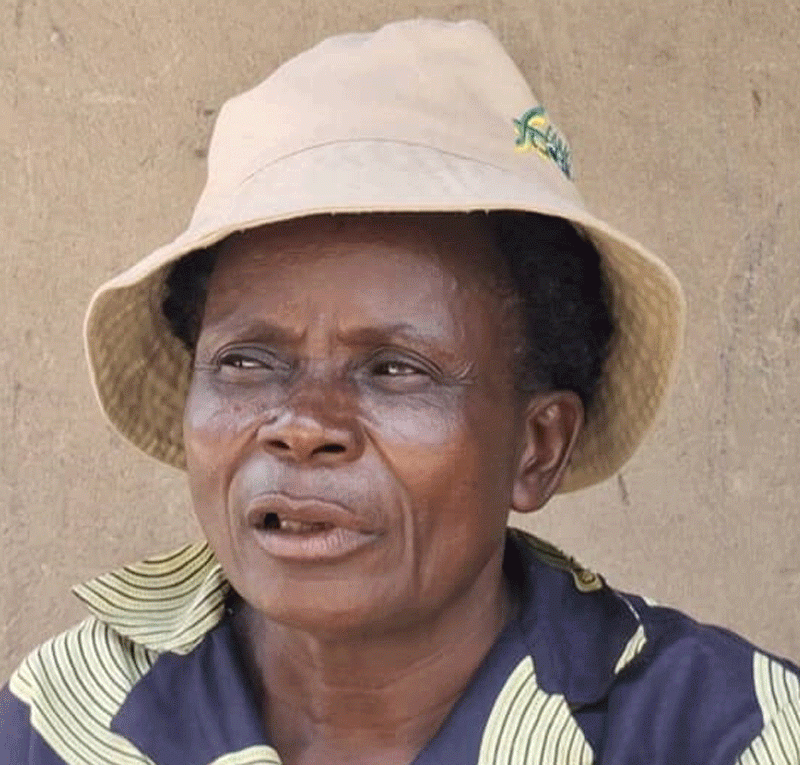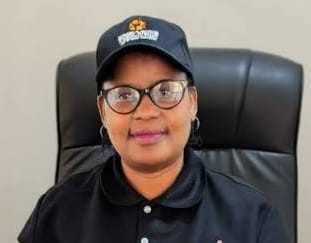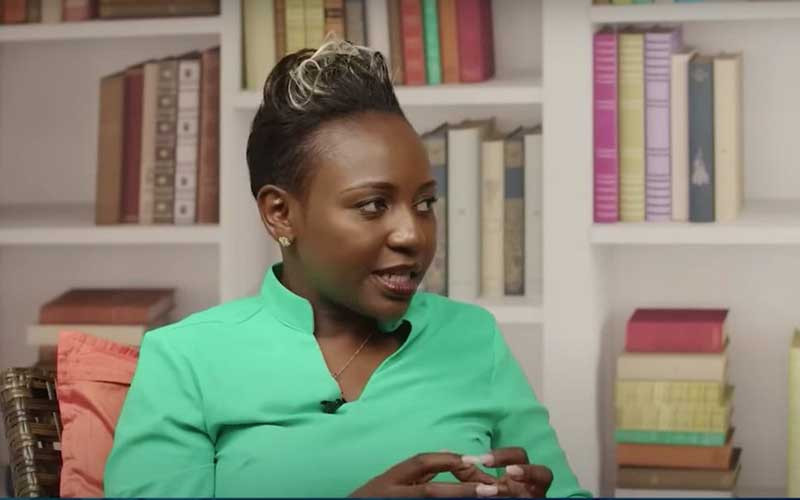
Financial inclusion advocate Ethel Chiwara-Mupambwa says her passion for women’s empowerment is inspired by her background where she grew up in a polygamous family.
Chiwara-Mupambwa (EM), who is the founder and chief executive of Money-Mart Finance, told Alpha Media Holdings chairman Trevor Ncube (TN) on the platform In Conversation with Trevor that empowering women meant the empowerment of the whole family.
She spoke about her upbringing, escaping a forced marriage and her passion for financial inclusion.
Below are excerpts from the interview.
TN: Dr Ethel Chiwara-Mupambwa, welcome to In Conversation With Trevor.
EM: Thank you Trevor. It is my pleasure to be here.
TN: Wonderful. You know I love talking to people like you Ethel, people who have actually built something, rolled their sleeves and gotten into the dirt and done something.
But I want us to start almost at the beginning.
- In Conversation with Trevor: Chisamba: Let’s be proud of ourselves
- In Conversation with Trevor: ‘I tried to change Zanu PF from within’ – Margaret Dongo
- In Conversation with Trevor : How car crash changed my life
- In Conversation With Trevor: ‘We lost our humanity’
Keep Reading
You come from a polygamous family. Talk to me about that experience, and what that experience left in you as it were.
EM: Thank you Trevor for that. I always want to start with where I come from.
TN: Right.
EM: I come from Nembudziya in Gokwe. When I sit in such platforms I always say “Gokwe yazviita zvekare!”
TN: Hahahaha! I like that.
EM: Hahahaha. I’m sure everyone knows the jokes being thrown around about Gokwe and I am so proud of where I come from and I remind people this is also one of those things that come out of Gokwe.
Trevor, I grew up in the dust and dark streets of Nembudziya in Gokwe. It taught me a lot.
My father was a businessman and a polygamist, and his stores were written “Chiwara and Sons Stores”.
It spoke a lot to me. Where were the wives in this setup? My sons?
What more we daughters if the wives are even excluded from this business?
So that really got me to think a lot, even from childhood and being in a polygamous family it is survival of the fittest.
You had to be strong, you had to push for what you want, moreso if you are a girl-child.
Generally, in Nambudziya Gokwe we grew up in a patriarchal society. They believed in men, they believed in their sons more than even us.
So imagine you are in a patriarchal society, in a polygamous family and a girl-child.
TN: Wow. What a combination?
EM: What a combination. So for me from the word go I told myself I am going to fight.
This is the time that I started discovering and imagining what it is like even being a grown-up woman.
But there is an exciting story of my life that I would want to share. We were a big family.
TN: How big? How many wives did he have and how many children?
EM: Four wives. Even my grandfather had four wives if I can count them. But besides those wives...
TN: How many children?
EM: There are so many other children outside these wives. Hahaha.
Recently, last year we actually connected with one of our siblings who we had not known. We are still counting.
TN: You are still counting?
EM: Yeah. I am sure more are still coming and we are excited about it. It is good to be many.
TN: Absolutely. Right.
EM: So this story that my mother always tells me, it is exciting to me and it speaks a lot.
She says at one time, you know we went to school, and the school now was sending people out of school because of non-payment of fees.
Unfortunately, I think my father would pay for the boys first before us.
So I was sent away, and from that day I went straight to look for my father. I told him I want to be a boy.
Find somewhere where kids are changed from girls to boys, because I am intelligent...
TN: Wow.
EM: I was actually performing better than my other siblings who are boys.
Why am I being sent away from school? It was I think the first time having to be mature enough knowing...
TN: How old were you? Do you remember?
EM: I think they were telling me I was about Grade 3.
TN: Grade 3?
EM: Yes. In our society, even in our family, we women were not allowed to wear trousers, so we knew it.
What then my mother did so that she eased this situation, she went and bought a pair of trousers and gave me.
So from that day I started feeling like I am now one of the boys.
What a moment, imagine, and my father knew from that day that if it's for me, my fees will be paid.
In my mind I think I thought wearing trousers was the thing that made me not to be sent away from school.
So it really spoke to me, even this day as an adult you know I am in an industry where it is male- dominated, and I stand up.
I think and I still believe women, we bring so much more to the table, and it has to be recognised.
TN: Fascinating, because one would have thought that coming from this polygamous family that you would be beaten down, intimidated, but the exact opposite has happened.
Talk to me about that.
EM: Like I told you, I just grew up fighting, everything about me was a fight.
I thank God now that I know it is a fight of faith.
So for me I fight, I work hard Trevor.
I have appreciated this thing in my life that for us women, for anything that we do we need to put twice as much effort as the boy-child colleague you know.
So I have registered that in my mind, and I have said if this is what has to be done I have to do it, and make sure I change the status quo.
I am known as a financial inclusion evangelist.
I am so passionate about women.
You know 70% of women are financially excluded in this world?
From where I was growing up I could see even our mothers would put so much contribution to the wealth of the family, but it was not being recognised, and this is why I am standing up as a youth, as a woman to say no guys, give us the chance, give us the time, recognise us.
In any case if we empower a woman, we would have empowered a whole family.
I can imagine my mom is the first wife, I can imagine if it was the other way round, if it was my dad and a second husband had been brought home.
I am sure he would run away from that home, but she had to stay and build a family.
TN: I read something somewhere that your father had found a husband for you and you ran away?
EM: Very true. You know what in such a setup in a rural area, and coming from a polygamous family.
Like I told you, the issue behind it was for a girl-child to be married and carry another person's name and not the Chiwara name, my maiden surname.
To them it was one of those things.
So after my ‘O’ Level I had passed. So (dad) said it was time up.
Why would you want to proceed with education?
But for me I knew there was an ‘A’ Level next. I asked him, dear father, is this guy going to send me to ‘A’ Level?
And he was like it is his choice you know, after all you will be now in his hands, and how will you do ‘A’ Level when you are supposed to be making babies? Hahahaha.
That is the time that I realised, no, I will not even go and fight this man if I failed to fight my father.
I had to run away from home, and I had to go and pursue my dream.
Fortunately enough, I had a sister who was already in Harare so I just boarded the bus, our buses in Nembudziya they travel around 11pm to 2am.
I arrived in Harare around 2am, we slept in the bus until 4am and we found our way to where we were going.
So I went to my sister, and I told her I am not doing this, I want to go to ‘A’ Level and after ‘A’ Level I would decide if I want this (marriage).
But you know the greatest thing then that happened after my ‘A’ Level, having passed, I had an A grade in Mathematics. My father was excited.
You know he took my results slip, he would walk with it through the whole growth point telling people look a girl-child passing Mathematics at ‘A’ Level!
That is when I realised that sometimes because of the background even our parents would have been raised up from, and when you show them light they would even appreciate it.
I realised that even if he was alive today I am sure he would be sitting by my side today telling the story, telling other fathers out there to say you need to support the girl-child, you will be amazed.
TN: Wow. What a story. Your first business was baking cakes? Am I right?
EM: My first ever business was a small little internet cafe Trevor, when I was at college. I went to NUST.
I got to Bulawayo, and I am coming from a family where I will not be given everything from home.
So I also had to sustain myself, in terms of pocket money and those issues.
For me I thought, I need to be able to make a little dollar out of this.
So I opened a small internet cafe.
I had to make people pay, I would make sure I would type other people's assignments for a dollar or two, and I would always put the extra hard work.
TN: Wow.
EM: Then after college, when we graduated our economy was not really in shape.
TN: What year is this?
EM: It was in 2008, you know the story of 2008?
TN: Yeah.
EM: My attachment year I did at Ernest and Young. Our hope was to come back to Ernest and Young, and life would go smoothly, but that did not happen.
Unfortunately Ernest & Young could not take us back that time.
I then got a job at Firmside Management. I was at Wimpy First Street as a porter.
I did not mind that I had a degree, I wanted to survive. I was not going to go back to Gokwe at this point in time.
Trevor, I learnt something, whenever you put hard work in something that you do people recognise it.
I was a porter in Wimpy First Street, I am sure the people that I worked with would testify.
Do you know I cleaned Wimpy First Street, I washed those plates with excellence to the extent that one of the managers called me from head office, who would pass by Wimpy First Street.
They saw the difference, and said what education level do you have?
I told them I have a degree, and he was like so why are you cleaning these floors and washing plates?
I said, but this is the job that I got.
Immediately I got a promotion, I became an internal auditor at Firmside Management because of the excellence that I would put in the cleaning of plates, in the cleaning of floors at Wimpy First Street.
TN: You know you remind me of something that somebody said which is: “Work hard at the job you have because your promotion to the next level comes from how much you apply yourself.”
Rather than saying they are not taking care of me here, you know I am going to be lazing around until I get something else. Is that your sense?
EM: This is the thing that I am trying to put out there, and even talking to young people out there I am discovering in me now being a CEO of the fastest growing micro-finance institution in Zimbabwe, I am meeting young people who are demanding so much, but not producing the results.
- “In Conversation With Trevor” is a weekly show broadcast on YouTube.com//InConversationWithTrevor. The conversations are broadcast to you by Heart and Soul Broadcasting Services

